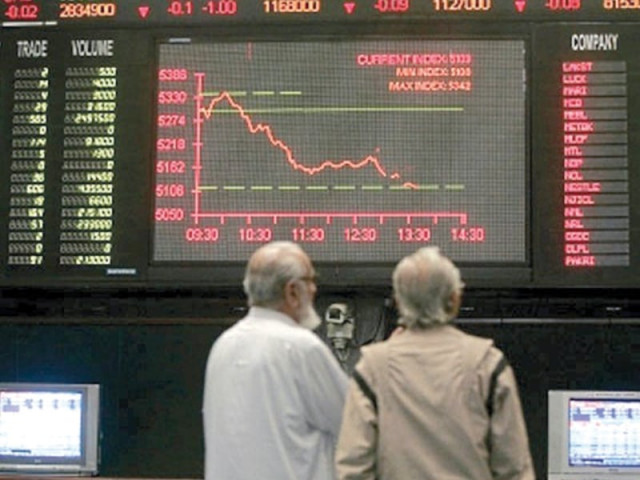Outlook: Stock market to take a breather, says Arif Habib
Investment titan blames govt for market gains not translating into GDP growth.

Habib’s prediction of a slowdown in the rise of the KSE-100 Index appears to be accurate already. PHOTO: FILE
Investment titan Arif Habib has said Pakistan’s equity market is going to take a breather soon, with the Karachi Stock Exchange (KSE) benchmark index expected to hover around 30,000 points by the end of June.
Speaking to The Express Tribune in an exclusive interview, the chief executive officer of Arif Habib Corporation said the rapid surge in the KSE-100 Index in the recent past will soon take a pause because of a dip in profitability in major sectors of the economy.
“The rupee’s growing strength will hit the profitability of energy exploration and production companies, independent power producers and the textile sector. I believe the overall growth in profitability witnessed so far is not going to be there in the second half of 2014,” Habib said, adding that the upward movement of the benchmark index will remain ‘marginal’ in July-December 2014.
Since the beginning of the current fiscal year, the KSE-100 Index has risen 38.3%. The increase is over 15% since the beginning of the calendar year.

All the sectors that Habib says are likely to slow down the meteoric rise of the equity market depend heavily on the relative weakness of the rupee against the dollar. However, cement and banking sectors, which depend on local sales and the overall state of the economy, will lead the market going forward, Habib says.
So why exactly will banks gain despite the central bank’s recent move to link the minimum return on savings accounts with the monetary policy rate?
No doubt banks will see their spreads contract in coming months, Habib says. However, the mere fact that a significant chunk of their balance sheets consists of investments in government securities should ensure that their bottom lines will keep growing in spite of the shrinking difference between lending and deposit rates in the economy, he noted.
“Securities’ prices go up as soon as interest rates come down, thus leaving a positive impact on banking sector stocks,” he added. Chances of a recovery in banks’ non-performing loans will also improve, as asset prices tend to rise while interest rates decline, he noted.
Habib’s prediction of a slowdown in the rise of the KSE-100 Index appears to be accurate already. The benchmark index posted a decline of 155 points on Monday after inching up for 10 consecutive sessions in a row. But temporary setbacks should not deter investors from taking benefit of the country’s stock market that has posted as much as 36% annual returns for the last 13 years on average, he says.
In dollar terms, the return translates into a staggering gain of 31% per annum for the last 13 years – an exceptional performance by global standards.
“Our market’s track record is excellent. Despite the recent increase, our price-to-earnings (P/E) multiple is still cheaper than many other markets. Valuations of similar companies in other jurisdictions are far higher,” Habib noted.
According to a research note issued by Shajar Capital on Monday, the current P/E multiple has increased to 11 on the back of the gain of over 2,000 points in the last dozen or so sessions.
The equity market may have posted significant gains over the last many years, but the fact remains that the bullish run has not truly been reflected in the Gross Domestic Product (GDP) growth rate. Habib holds government policies responsible for the limited impact of the equity market on the country’s overall economic output.
While take-home incomes of professionals associated with the financial sector, organised large-scale manufacturing and agriculture have increased substantially, he says, the small and medium-size enterprises have suffered the most in recent years because of power shortages.
“It’s true that better profitability hasn’t translated into higher investments. With persistent power shortages and security problems, most investors tend to enjoy profits without expanding their businesses,” he said, adding that the current government is working in the right direction to address these long-standing problems.
Published in The Express Tribune, April 15th, 2014.
Like Business on Facebook, follow @TribuneBiz on Twitter to stay informed and join in the conversation.



















COMMENTS
Comments are moderated and generally will be posted if they are on-topic and not abusive.
For more information, please see our Comments FAQ